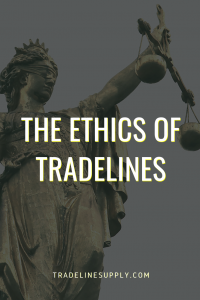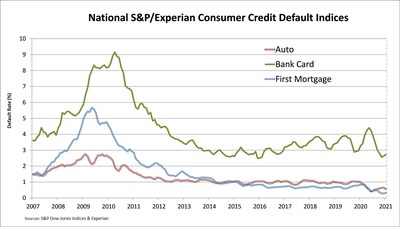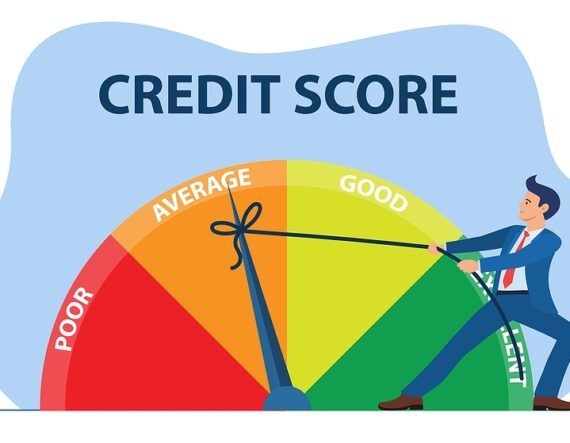Watch Out for These Tradeline Myths
The tradeline industry is full of rumors, myths, and inaccuracies. Since we aim to educate consumers on how tradelines work and how the credit system works, we want to dispell some of these common myths about tradelines.
The Equal Credit Opportunity Act prohibits credit discrimination and helps protect authorized users tradelines.
1. Tradelines Are Illegal
Unfortunately, many people immediately discount the idea of using tradelines because they believe the pervasive myth that tradelines are illegal.
The reason this myth exists is that FICO stated in 2008 that the FICO 9 credit score would eliminate the benefits of authorized user tradelines for credit piggybackers by somehow distinguishing between “real” authorized users and those who just want to use AU tradelines to build their credit profile.
However, the Equal Credit Opportunity Act (ECOA) prevents this kind of credit discrimination, and FICO admitted to Congress that this action would illegally violate ECOA. Thus, FICO was forced to reverse its decision.
It seems that many people assumed that since the issue of tradelines went all the way to Congress, they must have been banned, but that is not the case. To the contrary, Congress actually protected the ability of consumers to use authorized user tradelines.
As further evidence that tradelines are legal, the banks themselves actually promote the practice of becoming an authorized user for the specific purpose of boosting your credit score.
2. Tradelines Don’t Work Anymore
This is another myth that arose out of the FICO controversy in 2008. Since FICO claimed that their new credit scoring model would be able to differentiate between traditional authorized users and those trying to “game the system,” many people assumed that this meant AU tradelines wouldn’t work anymore.
However, as we discussed above, FICO was not legally able to go through with this plan, which means anyone can still take advantage of the benefits of user tradelines.
ECOA protects authorized users from being discriminated against, so AU tradelines are here to stay.
Plus, even if FICO does manage to come out with a score designed to punish piggybackers in the future, it will likely take years or even decades for lenders to start using the new score.
If you are not convinced that tradelines still work, we recommend reading our article, “Do Tradelines Still Work in 2019?”
Some people think that it is unethical to buy or sell tradelines because they believe that people who buy tradelines are artificially boosting their credit score and can therefore obtain credit that they are not really qualified for.
Firstly, is it unethical to try to boost one’s credit score using legally allowable methods?
People take actions to boost their credit scores every day, such as asking for credit limit increases, taking out new loans to establish more lines of credit, asking their banks to forgive late payments, paying down credit card balances multiple times a month to keep the utilization low, just to name a few.
Becoming an authorized user for the purpose of building credit is just one of many common methods that people use to try to improve their credit.
You have probably even tried several of these techniques yourself. Therefore, it seems that the majority of people do not believe that it is unethical to manipulate credit scores within the legal limits of the law.
In addition, studies have shown that about a third of people have authorized user accounts in their credit profiles and that those authorized user accounts tend to be superior tradelines to the primary accounts in their own name, which means about a third of people are already benefiting from credit piggybacking.
However, minorities have fewer authorized user accounts and benefited less from them compared to whites.
Creating a marketplace where affordable tradelines can be bought and sold helps to create more equal credit opportunity for those who have historically been disadvantaged by an unfair system.
Read “The Ethics of Tradelines” for an extended discussion on this topic.
4. Tradelines Are Expensive
One of the common complaints about tradelines is that they are expensive. Historically, tradelines were only available to the wealthy and privileged due to their high cost.
That may still be true for a lot of tradeline companies, but Tradeline Supply Company, LLC has been a leader in revolutionizing the tradeline industry and making tradelines affordable for everyone.
Our fully automated online platform allows us to keep costs down and provide fairly priced tradelines to consumers.
Our tradelines range in price from as low as $150 to around $1500. Our inventory of thousands of tradelines means virtually everyone can find tradelines that fit their needs as well as their budget.
We have also helped contribute to lower pricing in the industry as a whole. Other companies have started to follow our lead and lower their prices to stay competitive.
All of this means that tradelines are now more affordable than ever.
5. Primary Tradelines Are Better Than Authorized User Tradelines
People often assume that primary tradelines are superior to authorized user tradelines. They think that since authorized users are not held financially responsible for a credit account, primary tradelines must be more powerful, but this belief is somewhat misguided.
When it comes to building credit, the ultimate goal is to open your own primary accounts and maintain a positive history on those accounts, so in this sense, primary tradelines are the priority.
However, when it comes to buying tradelines, trying to buy a primary tradeline is generally not a good idea. Firstly, the primary tradeline industry is full of scams and questionable practices, some of which may even be illegal.
If you think about it, it doesn’t really make sense to try to “buy” a credit account that, by definition, is supposed to have been issued to you by the creditor. If the account was not issued to you, that means someone else had to have opened that account in their name at some point, so how does it then become your primary tradeline?
Secondly, purchasing a primary tradeline may not even help achieve your goals as much as you might think. A legitimate primary tradeline will have no age and no payment history associated with it and will probably have a low limit as well.
In contrast, you can legitimately purchase authorized user tradelines that have lots of age and perfect payment history in addition to high credit limits.
Which option do you think would be better for your credit: the brand-new account with a low limit, or a seasoned AU tradeline with a high limit? In general, the seasoned authorized user tradeline is going to be the better choice.
6. Tradelines Are an Alternative to Credit Repair

An easy way to think about the distinction between tradelines and credit repair is that tradelines add positive information to your credit report, while credit repair removes inaccurate information from your credit report.
If your credit report has damaging errors on it that are lowering your score, any tradelines you add will be limited in their power. For this reason, you may want to undergo credit repair before or in tandem with tradelines.
Similarly, tradelines should not be used as a substitute for credit repair. While they can help to balance out derogatory accounts, this is not the same thing as cleaning up errors in your credit report.
The best results for your credit can be obtained by using both credit repair and tradelines together.
7. Authorized User Tradelines Do Not Count for Mortgages or Auto Loans
For the majority of the most common mortgages, there is no minimum tradeline requirement.
We do not advertise our tradelines saying if you buy our tradelines you can then qualify for a mortgage or auto loan. However, we have done some research and we have found that for the majority of the most common mortgages (most conventional, FHA, and VA loans) there is no minimum tradeline requirement in order to qualify for those loans.
In other words, someone can have zero tradelines and could still potentially be qualified to buy a house. The main factors will typically be the debt-to-income ratio, loan-to-value ratio, and credit score.
Fannie Mae typically updates their underwriting guidelines in regards to authorized user tradelines on their website.
We have heard there are similar guidelines for auto loans as well. Again, we are not claiming that buying tradelines can help someone buy houses or cars, but we are simply addressing this common myth.
8. I Can’t Get Tradelines That Were Opened Before My 18th Birthday
Some people believe that you cannot or should not buy tradelines that were opened before you turned 18 years old. The theory seems to be that it would look suspicious if you were to have an authorized user tradeline while under the age of 18, so somehow the tradeline wouldn’t count toward your credit history.
Contrary to this myth, you do not have to buy tradelines that were opened after your 18th birthday.
In reality, there are many examples to show that this is not true. Parents often add their children as authorized users of their credit cards well before age 18, whether they allow their children to actually use the credit cards or they just want to help their children build a credit history from a young age.
Imagine this hypothetical example: let’s say you are 16 years old. Your father has a credit card that has been open for 20 years. He wants you to be able to use the credit card in case of emergencies, so he adds you as an authorized user to his 20-year-old account. In this case, the tradeline actually extends back to before you were born, but that does not prohibit you from being an authorized user on the account.
Of course, there may be exceptions to this rule, since different banks may have different policies as to the minimum age of authorized users.
However, if you are over the age of 18 and buying tradelines, it should not matter how old the tradeline is.
9. Tradelines Are Only a Temporary Solution
Although tradelines usually only report as open for two months, they remain on your credit report as part of your permanent credit history.
While it is true that a tradeline will typically only report as an open account on your credit report for two reporting cycles, this does not mean that tradelines are only a temporary solution.
Once you are removed from the tradeline, the account will then show as closed, and the closed account will remain on your credit report as part of your permanent credit history for as long as the bank continues to report it.
Although closed accounts are assumed to weigh less on your credit score than open accounts, since the closed tradeline is still a part of your credit history, it will likely still factor into your credit score.
10. The Credit Limit Is More Important Than Age
Between the two most important factors to consider when choosing a tradeline, age and credit limit, we usually recommend prioritizing getting as much age as possible, because age is the most powerful factor of a tradeline. Of course, this depends on what your goals are, but in most cases, age is more valuable than the credit limit.
This is because age goes hand-in-hand with payment history, together making up 50% of a credit score. When it comes to the length of your credit history, more is always better.
11. Buying a Tradeline Guarantees a Score Increase
Those looking to improve their credit score sometimes mistakenly assume that they can go out and buy any tradeline and get a guaranteed credit score boost. This is a dangerous myth because if buyers are not educated and choose the wrong tradeline for their specific credit situation, buying a tradeline could actually backfire and hurt their credit.
To make sure you don’t fall into this trap, we recommend reading “How to Choose a Tradeline,” “Common Mistakes Made When Buying Tradelines,” and “The #1 Secret on How to Unlock the Power of Tradelines.”
Read more: tradelinesupply.com
















